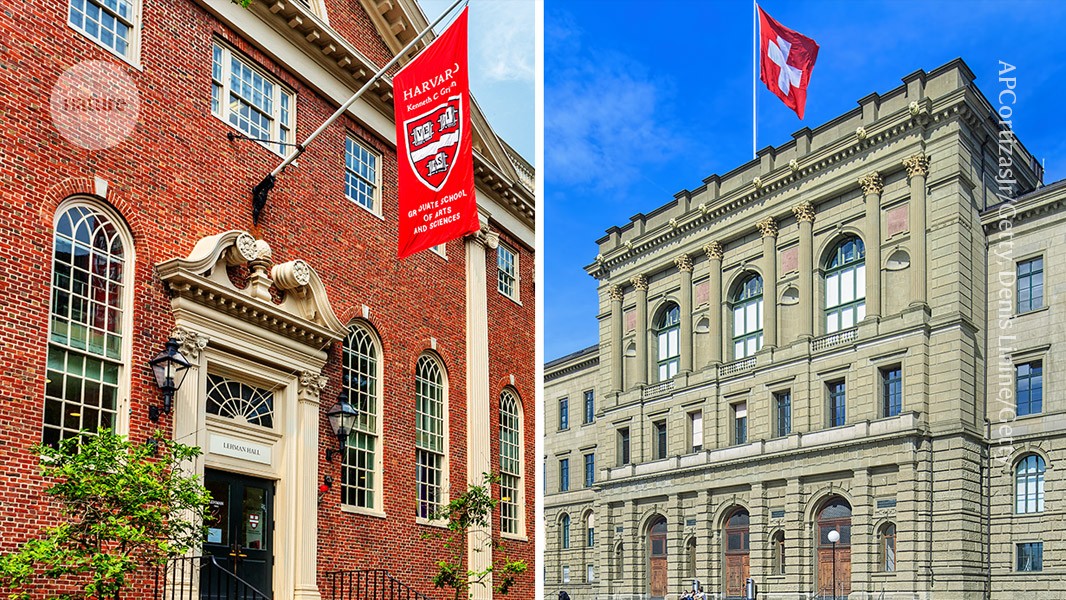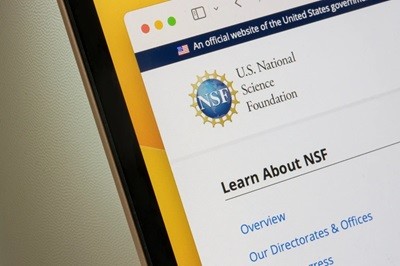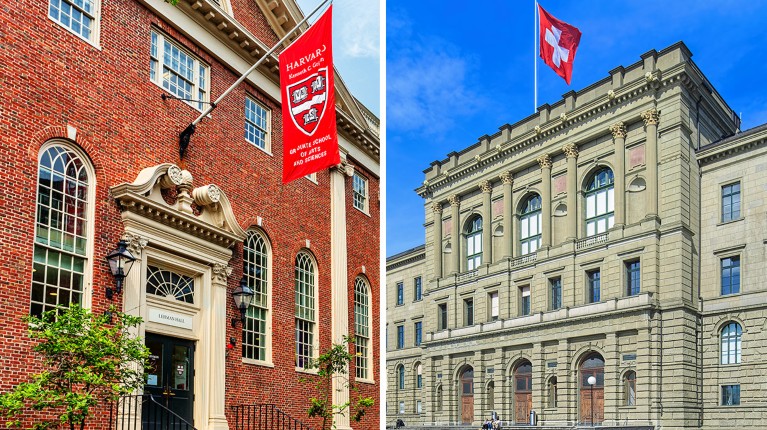
The decline in opportunities for US researchers is driving some scientists to seek job overseas, in particular in Europe.Credit: APCortizasJr/Getty, Denis Linine/Getty
Last month, economist Matthias Doepke packed up three decades of his life in the United States and resigned from his job at Northwestern University. He sold his house in Evanston, Illinois, and joined his wife and three children in London.
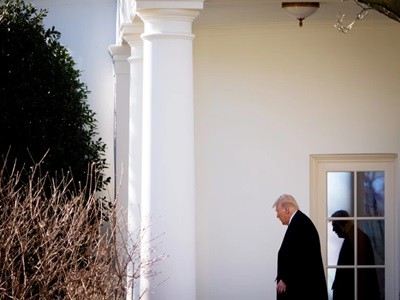
Trump proposes unprecedented budget cuts to US science
Doepke will continue his research, which explores how economic development influences families and gender equality, at the London School of Economics and Political Science, where he has held a position since 2022.
“I certainly did not expect to ever move back to Europe, or even leave Evanston,” says Doepke, a US citizen who is originally from Germany.
Doepke’s move has been driven by the drastic changes imposed on US science by the Trump administration. In the roughly four months since his inauguration, Trump’s government has begun dismantling US research agencies — sacking scientists, terminating grants and slashing budgets — and sought to exert increased control over universities.
The moves have prompted some scientists to think about leaving the country.
Nature spoke to five US-based researchers who are seeking, or moving to, jobs abroad because of the changes.

Economist Matthias Doepke has left the United States after 30 years for a research position in London.Credit: Kemka Ajoku
‘Research is not valued in the same way’
Doepke first considered leaving the United States in 2016, after Trump’s first election win. In 2022, he moved with his family to the United Kingdom and began splitting his time between London and Evanston to continue his work at Northwestern University. Their relocation was intended to be open-ended. “We wanted to give it a try but keep the option of returning to the US,“ he says.
Trump’s re-election — and his administration’s strengthened attacks on science and immigration compared with his first presidency — changed that. “Research and knowledge are not valued in the same way if they get in the way of ideology,” says Doepke.
“This no longer feels like the right place to raise a family and pursue a research career,“ he wrote in a Bluesky post.
Will US science survive Trump 2.0?
Still, it wasn’t easy to decide to leave the United States, he says. “After 30 years here, you have a family, you have your spouse with a career, you have children who are attached,” he adds. “We were quite happy there.”
‘It’s not an atmosphere conducive to planning a future’
Amid concerns over funding cuts and growing job instability in US science, one European postdoc at Harvard Medical School in Boston, Massachusetts, who asked to remain anonymous, has decided to leave the United States and accept job offers from institutions in Europe.
Despite a promising career outlook at several Ivy League universities, the researcher, who works in the biological sciences, withdrew from the application process at those institutions. She has chosen instead to prioritize work–life balance and better job security abroad.
“My choices are motivated by my desire to live in Europe, but the political situation adds in self-injury,” she says. “When funding or your right to live and work in a place can be taken away, it’s just not an atmosphere conducive to planning a future.”
The researcher requested anonymity because she worries that her views could endanger her research pursuits and because of concern that speaking out critically could draw scrutiny when leaving and entering the country. In the past few months, there have been reports of researchers who have been detained or denied entry at US borders amid Trump’s immigration crackdown. “It’s controversial enough to be a researcher on a visa these days,” she says.
‘The US risks losing a lot of good scientists’
After 15 years at Albert Einstein College of Medicine in New York City, a neuroscientist who wished to remain anonymous is now seriously considering leaving the United States.
Exclusive: NSF stops awarding new grants and funding existing ones
Although the idea of moving to Europe had long been in the back of his mind — for personal and professional reasons — the political climate, concerns over science funding and fears about the country’s direction have pushed him to reach out to colleagues abroad and prepare job applications. “This isn’t just one of those moments where you say, ‘If it gets bad, I’ll leave,’” he says. “It already has.”
He’s eyeing positions in Austria, Germany and Scotland, and says that others in his laboratory — from the United States and elsewhere — are open to relocating.
He requested anonymity because of his institution’s concern that speaking publicly could endanger its government funding. “The US risks losing a lot of good scientists,” he says, “and that’s not going to help its competitive edge.”
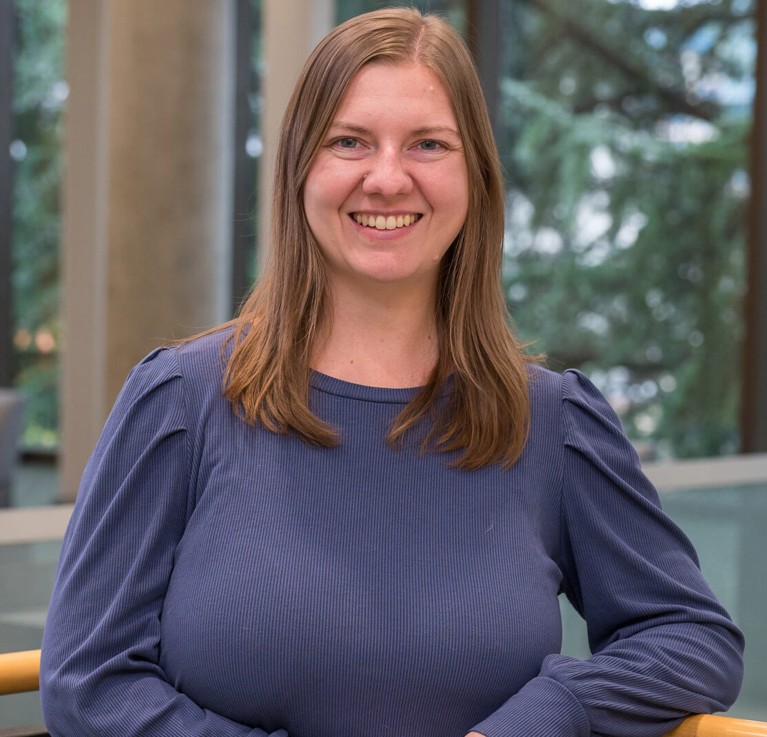
Cancer researcher Kristin Weinstein is exploring job opportunities in Canada and Switzerland.Credit: Benaroya Research Institute


